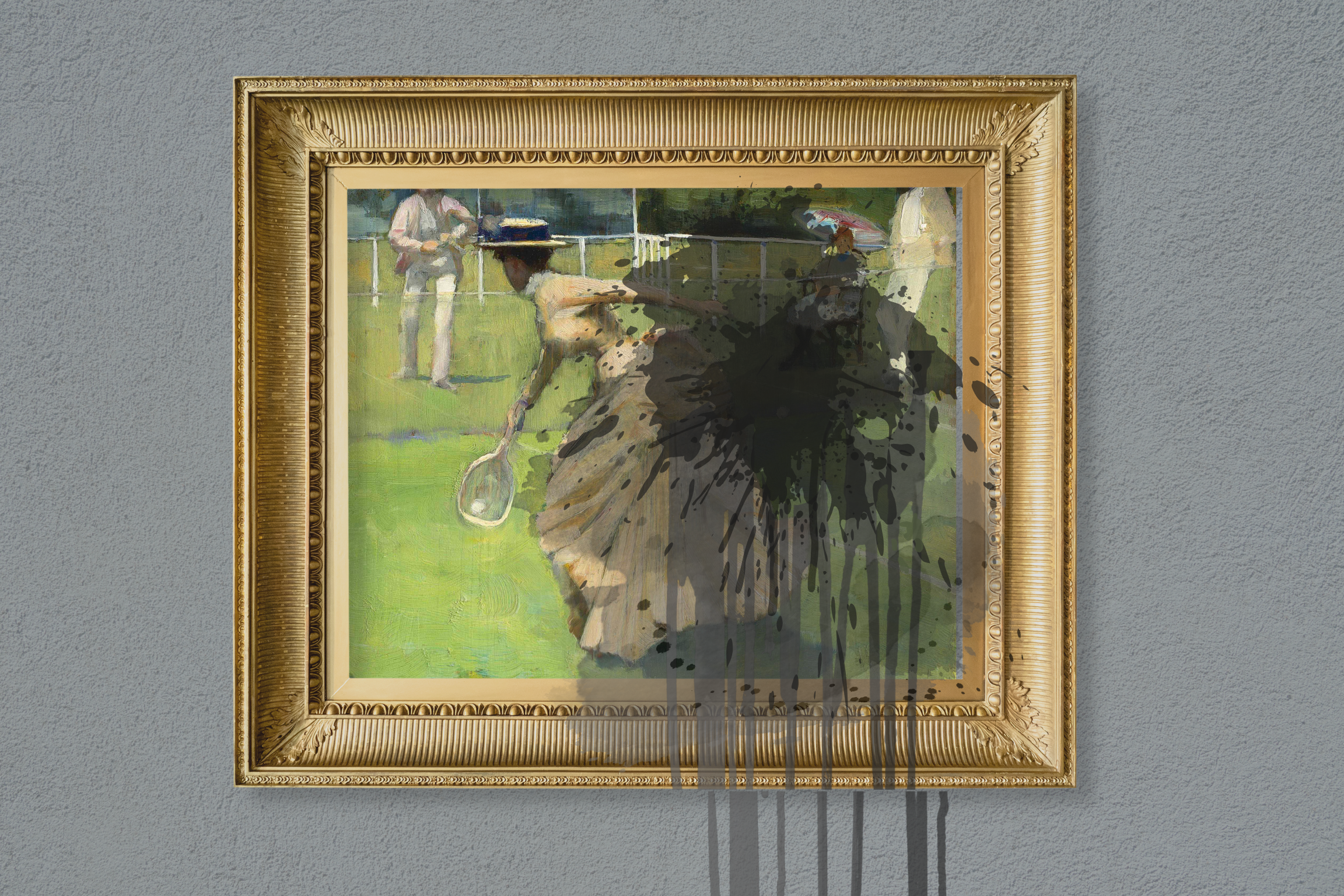You’re watching a tennis match at the U.S. Open when somewhere behind you, someone starts yelling. Turning around, you catch sight of three adults, standing and shouting the words, “end fossil fuels,” which is the same message printed on the fronts of their shirts. As law enforcement officials arrive and escort the protesters out, you turn back to the match. What did it amount to? A 49 minute delay of the match and criminal charges for the protesters. Was it worth it? Likely not.
This incident occurred on Thursday, Sep. 7 at the U.S. Open when environmental protesters interrupted the women’s semi-finals match between Coco Gauff and Karolina Muchova for 49 minutes. At the time, Gauff was winning 6-4, 1-0.
This type of protest is called a “shock factor protest,” and often involves the protesters doing something disruptive or shocking to the people around them in an effort to draw attention to themselves and their cause. This method of protest has been gaining popularity amongst climate change protesters in particular. In the past, shock factor protesters have done things like throw soup at a Van Gogh painting, glue themselves to a Monet and, most recently, disrupt a U.S. Open match by shouting and gluing their feet to the floor.
But really, how effective are shock protests?
Some people think actions speak louder than words. Maybe most of the time they do. But I’m here to tell you that in this case, they don’t.
While shock factor protests may be effective at creating disturbances, how often are these protesters really able to get their message across? Most people, including fans, commentators, players and the press, seemed to express frustration with the protesters, even those sympathetic to their cause, as evidenced by the booing and shouts of “kick them out” that can be heard from the crowd in a live recording of the protest.
Even Gauff expressed disappointment that the protest occurred during her match, despite noting: “I believe in climate change.”
But back to that age-old idiom that actions speak louder than words. It turns out that sometimes, reckless actions can completely overshadow the real message.
Contrast the importance of these protesters’ actions with the impact of now 20-year-old Swedish climate activist Greta Thunberg’s words to the United Nations in 2019: “The eyes of all future generations are upon you… if you choose to fail us, I say: We will never forgive you.”
The difference is night and day, in part because the U.S. Open protesters’ actions were disruptive, as opposed to constructive. That just doesn’t go over well when trying to make a positive impression. In addition, much of the press surrounding the protest tended to focus on the shocking nature of the protest rather than the intended message. After all, I doubt the protest really made people more climate conscious when everyone was too busy focusing on the protester who glued his feet to the stands.
On the other hand, Great Thunberg’s words were inspirational. The mere fact that a teenager could stand in front of such a prominent assembly and speak with such powerful force is impressive and attention-grabbing.
“You have stolen my dreams and my childhood with your empty words,” scolded Thunberg.
Now, that makes people think.
Gauff went on to win the match 6-4, 7-5, and ultimately the championship, but who knows how or whether the protest affected the outcome. Few people seemed to support the idea of protesters interrupting an event where two elite athletes were putting it all on the line at such a critical moment in their professional careers.
And, just 49 minutes after the protest began, the world was focused back on the tennis, already forgetting what they had just witnessed and experienced. There was no call to action and no response in most of the observers, not like there were for Greta’s speeches.
So do actions really speak louder than words? In this case, they didn’t.


